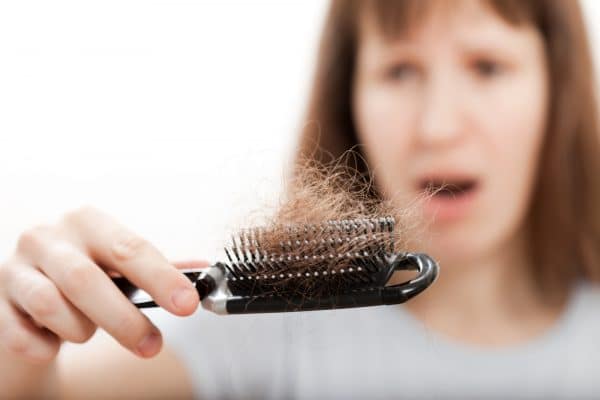Stress is a common problem that affects everyone at some point in their lives. It is a natural response of the body to any situation that requires a sudden change in behavior or action. However, when stress becomes chronic, it can have serious consequences on the body, including hair loss.
How Stress Affects Hair
Stress affects the hair in several ways. First, it increases the production of cortisol, a hormone that is responsible for the body’s fight or flight response. When cortisol levels are high, it can cause hair follicles to shrink, leading to hair thinning and eventually hair loss. Second, stress can disrupt the normal hair growth cycle, causing more hair to fall out than usual. Finally, stress can also lead to scalp inflammation, which can damage hair follicles and cause hair loss.
The Different Types of Hair Loss Related to Stress

There are three types of hair loss that are related to stress:
- Telogen effluvium: This is the most common type of hair loss related to stress. It occurs when hair follicles are pushed prematurely into the resting phase, causing hair to fall out. This type of hair loss usually occurs two to three months after a stressful event and is temporary.
- Alopecia areata: This is an autoimmune disorder that causes hair loss in patches. It is believed to be triggered by stress and can be temporary or permanent.
- Trichotillomania: This is a hair-pulling disorder that is often triggered by stress. People with this disorder have an irresistible urge to pull out their hair, causing patchy hair loss.
What You Can Do to Prevent Hair Loss Related to Stress
If you are experiencing hair loss related to stress, there are several things you can do to prevent further damage:
- Reduce stress: This is the most important thing you can do to prevent hair loss related to stress. Try to find ways to manage your stress, such as exercise, meditation, or talking to a therapist.
- Eat a healthy diet: Eating a diet rich in vitamins and minerals can help keep your hair healthy. Focus on eating foods that are high in protein, iron, and vitamin A.
- Avoid harsh hair treatments: Harsh hair treatments, such as chemical straightening or coloring, can damage your hair and make hair loss worse.
- Use gentle hair products: Use gentle hair products that are free from harsh chemicals and sulfates.
When to See a Doctor
If you are experiencing hair loss related to stress, it is important to see a doctor. They can help determine the underlying cause of your hair loss and recommend the best treatment options. In some cases, hair loss related to stress may require medical treatment, such as medication or hair transplant surgery.
Stress can have serious consequences on the body, including hair loss. If you are experiencing hair loss related to stress, it is important to take steps to manage your stress and take care of your hair. By reducing stress, eating a healthy diet, and using gentle hair products, you can help prevent further damage to your hair.











